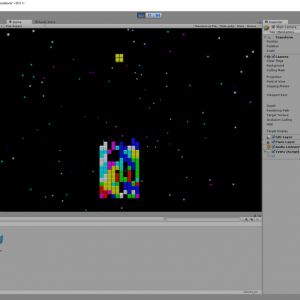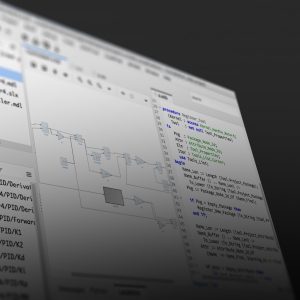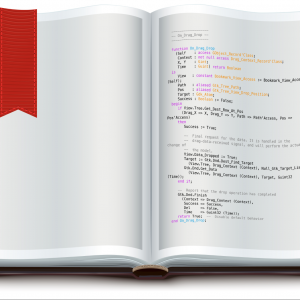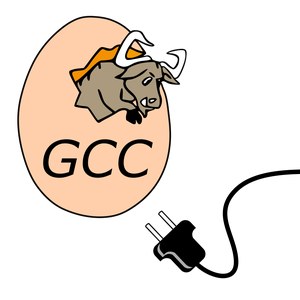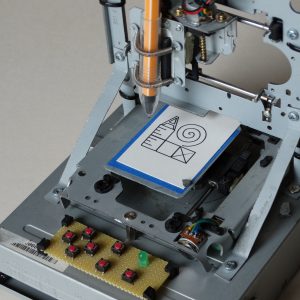SPARK and CodePeer, a Good Match!
It turns out that the CodePeer engine can be used as a powerful prover for SPARK programs. This feature will be available in the next version of SPARK Pro, make sure you try it out!
It turns out that the CodePeer engine can be used as a powerful prover for SPARK programs. This feature will be available in the next version of SPARK Pro, make sure you try it out!
There are moments in life where you find yourself with an AdaFruit thermal printer in one hand, and an OpenMV camera in the other.
Customizing build target switchesIn the first post in this series (Integrate new tools in GPS) we saw how to create new build targets in GPS to spawn external tools via a menu or toolbar button, and then display the output of that tool in its own console, as well as show error messages in the Locations view.
One year ago, we presented on this blog what was provable about fixed-point and floating-point computations (the two forms of real types in SPARK). Since then, we have integrated static analysis in SPARK, and modified completely the way floating-point numbers are seen by SMT provers. Both of these features lead to dramatic changes in provability for code doing fixed-point and floating-point computations.
This blog, the first in a series, explains the basic mechanisms that GPS (the GNAT Programming Studio) provides to integrate external tools. A small plugin might make your daily workflow more convenient by providing toolbar buttons and menus to spawn your tool and parse its output.
One of the interesting aspects of developing software for a bare-board target is that displaying complex application-created information typically requires more than the target board can handle. Although some boards do have amazing graphics capabilities, in some cases you need to have the application on the target interact with applications on the host. This can be due to the existence of special applications that run only (or already) on the host, in particular.
GNAT and all the tools work great on the newly released macOS Sierra, but gdb needs some tweaking of the system.
The GNAT Programming Studio support for the debugger has been enhanced. This post describes the various changes you can expect in this year's new release of GPS.
Something that many developers do not realize is the number of run-time checks that occur in innocent looking arithmetic expressions. Of course, everyone knows about overflow checks and range checks (although many people confuse them) and division by zero. After all, these are typical errors that do show up in programs, so programmers are aware that they should keep an eye on these. Or do they?
Using Ada technologies to develop video games doesn’t sound like an an obvious choice - although it seems like there could be an argument to be made. The reverse, however, opens some more straightforward perspectives.
The GPS source repository has been published on GitHub. This post briefly describes how you can access it, and hopefully contribute.
As we improve existing views in GPS, we discover new ways to use them. This post shows some of the improvements done recently in the Bookmarks view, and how you can now use it as a TODO list.
I recently started working on an Ada binding for the excellent libuv C library. This library provides a convenient API to perform asynchronous I/O under an event loop, which is a popular way to develop server stacks. A central part of this API is its enumeration type for error codes: most functions use it. Hence, one of the first things I had to do was to bind the enumeration type for error codes. Believe it or not: this is harder than it first seems!
I started this project more than a year ago. It was supposed to be the first Make with Ada project but it became the most challenging from both, the hardware and software side.
Today I will write the first article in a short series about the development of an SMTLIB processing tool in SPARK. Instead of focusing on features, I intend to focus on the how I have proved absence of run-time errors in the name table and lexer. I had two objectives: show absence of run-time errors, and do not write useless defensive code. Today's blog will be about the name table, a data structure found in many compilers that can map strings to a unique integer and back. The next blog post will talk about the lexical analyzer.
As seen in the previous blog article, AdaCore relies heavily on virtualisation to perform the testing of its GNAT Pro products for VxWorks.
Dr Carl Brandon of Vermont Technical College and his team of students used SPARK and Ada to successfully launch a satellite into space in 2013 and it has continued to orbit the Earth ever since! At our AdaCore Tech Days in Boston last year Dr Brandon explained further.
Just a few weeks ago, one of our partners reported a strange behavior of the well-known function Ada.Text_IO.Get_Line, which reads a line of text from an input file. When the last line of the file was of a specific length like 499 or 500 or 1000, and not terminated with a newline character, then Get_Line raised an exception End_Error instead of returning the expected string. That was puzzling for a central piece of code known to have worked for the past 10 years! But fair enough, there was indeed a bug in the interaction between subprograms in this code, in boundary cases having to do with the size of an intermediate buffer. My colleague Ed Schonberg who fixed the code of Get_Line had nonetheless the intuition that this particular event, finding such a bug in an otherwise trusted legacy piece of code, deserved a more in depth investigation to ensure no other bugs were hiding. So he challenged the SPARK team at AdaCore in checking the correctness of the patched version. He did well, as in the process we uncovered 3 more bugs.
Embedded products are not stand alone, this allows them to have safety, mission critical and real-time requirements that they wouldn’t necessarily have otherwise. The embedded product line provides analyzable, verifiable, and certifiable software for both static and dynamic analysis tools.
Embedded World will see the latest release of QGen, the qualifiable and customisable code generator for Simulink® and Stateflow® models!

